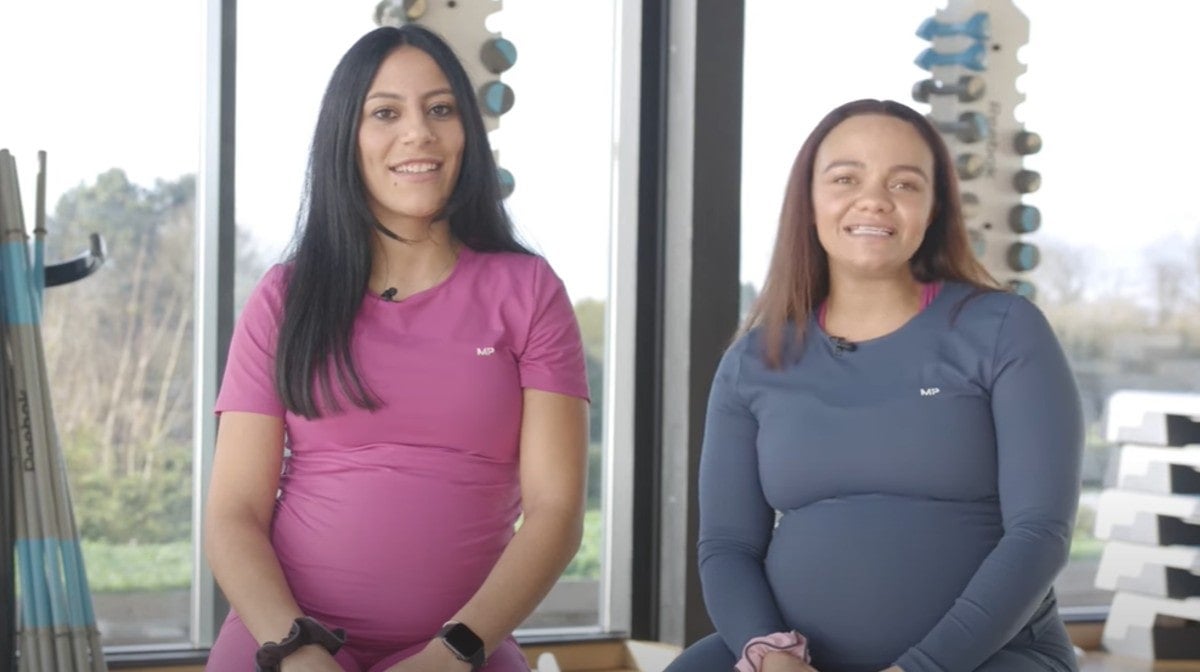
Training while pregnant can be difficult to navigate. While expectant mothers should not be expected to give up an active lifestyle, there are a few exercises best avoided.
Luckily, PTs Sim and Kay are on hand to guide mindful mums-to-be through the dos and don'ts of training when expecting. They’re both pre and post-natal trained, as well as pregnant themselves, so know a thing or two about the topic.
As ever, it’s always recommended that you speak to your doctor of midwife to receive the all-clear to carry on with any form of training when pregnant.
Unless you’ve been advised against it by a medical professional, it is safe to exercise during pregnancy. Having said that, it’s better to stick to roughly the same training programme you followed before finding out you were pregnant. For example, if you didn’t go to spin class before pregnancy, now’s probably not the best time to start.
If you didn’t exercise before pregnancy but want to start, it should still be safe to do so, but get some guidance first.
Some exercises to avoid
Don't exercise in a supine position
In other words, don’t complete any exercises while lying on your back. This can suppress the vein that carries oxygen to the baby.
Avoid forcibly exhaling with your mouth shut
This is common during heavy weightlifting. Exerting yourself in this way should be avoided because it puts pressure on the abdominal area and could increase blood pressure.
Adapt your calorie intake
Be mindful of how many calories you’re burning through exercise, ensuring you’re still eating plenty to account for the baby. You should increase your calorie consumption as you train and throughout the three trimesters.
Other considerations
- Avoid exercising in the heat
- Avoid contact sports (eg football, rugby and martial arts)
Take Home Message
And remember, exercise during your pregnancy should be fun and enjoyable. Pregnancy is an incredibly special time in your life, so don’t feel any pressure to push yourself if you don’t want to. Do what makes you feel good, and take the opportunity to connect with your growing baby — that’s the most important thing.







